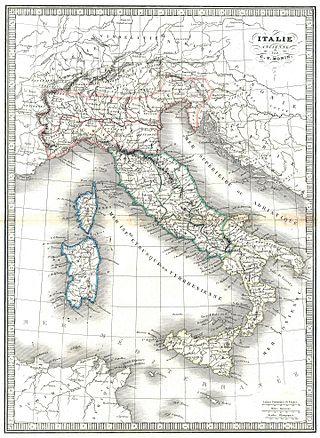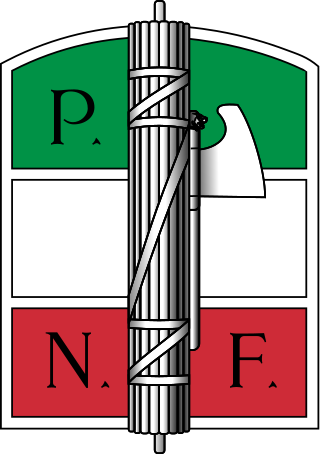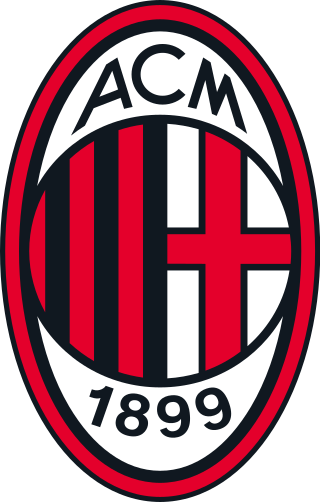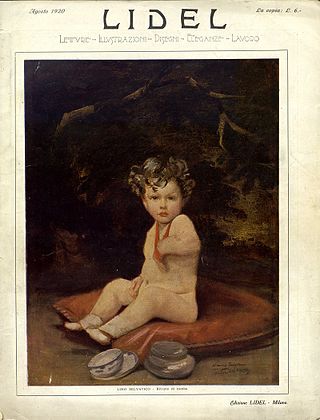Related Research Articles

Corriere della Sera is an Italian daily newspaper published in Milan with an average circulation of 246,278 copies in May 2023. First published on 5 March 1876, Corriere della Sera is one of Italy's oldest newspapers and is Italy's most read newspaper. Its masthead has remained unchanged since its first edition in 1876. It reached a circulation of over 1 million under editor and co-owner Luigi Albertini between 1900 and 1925. He was a strong opponent of socialism, clericalism, and Giovanni Giolitti, who was willing to compromise with those forces during his time as prime minister of Italy. Albertini's opposition to the Italian fascist regime forced the other co-owners to oust him in 1925.

The Kingdom of Yugoslavia was a country in Southeast and Central Europe that existed from 1918 until 1941. From 1918 to 1929, it was officially called the Kingdom of Serbs, Croats, and Slovenes, but the term "Yugoslavia" was its colloquial name due to its origins. The official name of the state was changed to "Kingdom of Yugoslavia" by King Alexander I on 3 October 1929.

Grazia is a weekly women's magazine that originated in Italy with international editions printed in Albania, Argentina, Australia, Bahrain, Bulgaria, China, Croatia, Colombia, France, Germany. Greece, Indonesia, India, Jordan, Macedonia, Mexico, the Netherlands, Poland, Portugal, Pakistan, Qatar, Serbia, Slovenia, South Korea, Spain, Thailand, and the United Kingdom.

Italian fascism, also classical fascism and Fascism, is the original fascist ideology, which Giovanni Gentile and Benito Mussolini developed in Italy. The ideology of Italian Fascism is associated with a series of political parties led by Mussolini: the National Fascist Party (PNF), which governed the Kingdom of Italy from 1922 until 1943, and the Republican Fascist Party (PFR), which governed the Italian Social Republic from 1943 to 1945. Italian fascism also is associated with the post–war Italian Social Movement (MSI) and later Italian neo-fascist political organisations.

Giovanni Agnelli was an Italian businessman who founded the Fiat S.p.A. car manufacturing in 1899.
Bridge d'Italia is the official magazine for the Italian contract bridge game federation, Federazione Italiana Gioco Bridge (FIGB). It has been published since January 1938.

Giustizia e Libertà was an Italian anti-fascist resistance movement, active from 1929 to 1945. The movement was cofounded by Carlo Rosselli, Ferruccio Parri, who later became Prime Minister of Italy, and Sandro Pertini, who became President of Italy.

The National Fascist Party was a political party in Italy, created by Benito Mussolini as the political expression of Italian fascism and as a reorganisation of the previous Italian Fasces of Combat. The party ruled the Kingdom of Italy from 1922 when Fascists took power with the March on Rome until the fall of the Fascist regime in 1943, when Mussolini was deposed by the Grand Council of Fascism. It was succeeded, in the territories under the control of the Italian Social Republic, by the Republican Fascist Party, ultimately dissolved at the end of World War II.

Massimo Bontempelli was an Italian poet, playwright, novelist and composer. He was influential in developing and promoting the literary style known as magical realism.
The Corriere dei Piccoli, later nicknamed Corrierino, was a weekly magazine for children published in Italy from 1908 to 1995. It was the first Italian periodical to make a regular feature of publishing comic strips.

Eugenio Curiel was an Italian-Jewish physicist, a prominent figure of the Italian resistance movement. He was awarded a gold medal (posthumously) for military valour.

Ettore Ovazza was an Italian Jewish banker. He was an early financer of Benito Mussolini, of whom he was a personal friend, and Italian fascism, which he supported until the Italian racial laws of 1938. He founded the journal La nostra bandiera. Believing that his position would be restored after the war, Ovazza stayed on after the Germans marched into Italy. Together with his wife and children, shortly after the Fall of Fascism and Mussolini's government during World War II, he was executed near the Swiss border by SS troops in 1943.

Associazione Calcio Milan, commonly referred to as AC Milan or simply Milan, is an Italian professional football club based in Milan, Lombardy. Founded in 1899, the club competes in the Serie A, the top tier of Italian football, and has spent its entire history there with the exception of the 1980–81 and 1982–83 seasons.

Benito Amilcare Andrea Mussolini was an Italian dictator who founded and led the National Fascist Party (PNF). He was Prime Minister of Italy from the March on Rome in 1922 until his deposition in 1943, as well as Duce of Italian fascism from the establishment of the Italian Fasces of Combat in 1919 until his summary execution in 1945 by Italian partisans. As dictator of Italy and principal founder of fascism, Mussolini inspired and supported the international spread of fascist movements during the inter-war period.
Corrente di Vita was a biweekly Italian culture magazine published between 1938 and 1940.

Tempo was an illustrated weekly news magazine published in Milan, Italy, between 1939 and 1976 with a temporary interruption during World War II.

Fascist Italy is a term used to describe the Kingdom of Italy governed by the National Fascist Party from 1922 to 1943 with Benito Mussolini as prime minister and dictator. The Italian Fascists imposed totalitarian rule and crushed political opposition, while promoting economic modernization, traditional social values and a rapprochement with the Roman Catholic Church.

Lidel was a nationalist women's fashion magazine which was in circulation Milan, Italy, in the period 1919–1935. The title was a reference to its founder's name, Lydia Dosio De Liguoro, as well as to the words Letture, illustrazioni, disegni, eleganze, lavori. The magazine played a significant role in the birth of Italian fashion, but at the same time became one of the most militant publications of Fascist Italy.

Melchiade Gabba was an Italian general during the Fascist period, who served as commander of the Royal Corps of Colonial Troops of Eritrea and Chief of Staff of the East Africa High Command during the Second Italo-Ethiopian War. From 27 July 1943 to 24 February 1944 he was Minister of Italian Africa of the Badoglio I Cabinet. He was also a Senator of the Kingdom of Italy from 1939 to 1944.

La Ronda was a literary magazine which existed in Rome, Kingdom of Italy, between April 1919 and November 1922. In December 1923 a special issue was also published.
References
- 1 2 "Dialectics of Modernity". manchester.ac.uk. Retrieved 20 August 2023.
- 1 2 Ruth Ben-Ghiat (2004). Fascist Modernities: Italy, 1922–1945. Berkeley and Los Angeles, CA; London: University of California Press. p. 222. ISBN 978-0-520-24216-6.
- 1 2 3 4 Francesca Billiani (July 2013). "Return to order as return to realism in two Italian elite literary magazines of the 1920s and 1930s: La Ronda and Orpheus". Modern Language Review . 108 (3): 841,844,847–848. doi:10.1353/mlr.2013.0192.
- ↑ "Regalarte. a cura di Nicola Rotiroti". MeloBox (in Italian). 8 December 2018. Retrieved 20 August 2023.